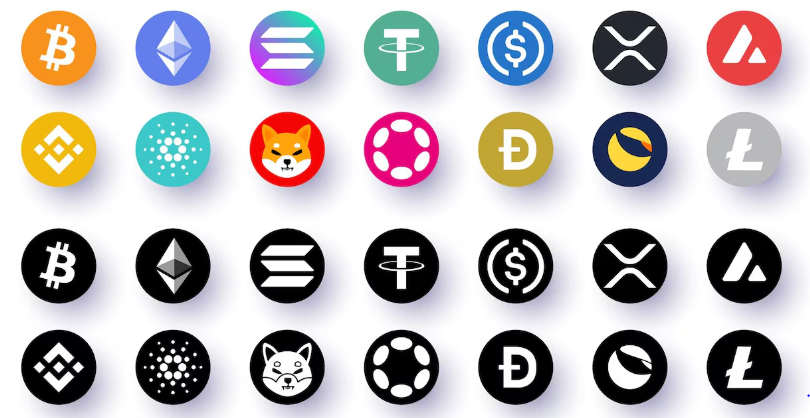Introduction
Cryptocurrency has emerged as a revolutionary force in the financial world, offering a decentralized and secure way to conduct transactions. Understanding cryptocurrency is essential for anyone interested in the future of finance and investment.

What is Cryptocurrency?
Definition and Characteristics
Cryptocurrency is a digital or virtual form of currency that uses cryptography for security. Unlike traditional currencies issued by governments, cryptocurrencies operate on decentralized networks based on blockchain technology. This ensures transparency, security, and immutability of transactions.
Brief History
The concept of cryptocurrency was introduced with the release of Bitcoin in 2009 by an anonymous entity known as Satoshi Nakamoto. Since then, the cryptocurrency market has grown exponentially, with thousands of different cryptocurrencies now available.
Popular Cryptocurrencies

Bitcoin
Bitcoin is the first and most well-known cryptocurrency. It paved the way for the digital currency revolution and remains the largest cryptocurrency by market capitalization.
Ethereum
Ethereum is a decentralized platform that enables smart contracts and decentralized applications (DApps) to be built and run without any downtime, fraud, or interference. Its native currency, Ether (ETH), is the second-largest cryptocurrency by market cap.
Other Notable Cryptocurrencies
- Litecoin (LTC): Often referred to as the silver to Bitcoin’s gold, Litecoin offers faster transaction times.
- Ripple (XRP): Focuses on enabling real-time cross-border payment systems.
- Cardano (ADA): Known for its research-driven approach to blockchain technology.
How Cryptocurrency Works
Blockchain Technology
A blockchain is a decentralized ledger that records all transactions across a network of computers. Each block contains a list of transactions, and these blocks are linked together in a chain. This technology ensures transparency and security.
Mining and Validation
Mining is the process by which new cryptocurrency coins are created and transactions are added to the blockchain. Miners use powerful computers to solve complex mathematical problems, validating transactions and securing the network.
Transactions and Wallets
Cryptocurrency transactions involve transferring coins from one digital wallet to another. Wallets store private keys, which are necessary to authorize transactions. There are different types of wallets, including hardware, software, and paper wallets.
Benefits of Cryptocurrency

Decentralization
Cryptocurrencies operate on decentralized networks, meaning no single entity has control. This reduces the risk of censorship and centralized failures.
Security
Cryptographic techniques ensure that transactions are secure and data integrity is maintained. Blockchain technology makes it nearly impossible to alter transaction history.
Lower Transaction Costs
Cryptocurrency transactions often have lower fees compared to traditional banking systems, especially for international transfers.
Accessibility
Cryptocurrencies provide financial services to the unbanked population, offering access to global markets and financial products.
Challenges and Risks
Volatility
Cryptocurrency prices are highly volatile, which can result in significant financial gains or losses in a short period.
Regulatory Issues
The regulatory landscape for cryptocurrencies is constantly evolving, with different countries adopting varying approaches. This uncertainty can impact the market.
Security Concerns
While the blockchain itself is secure, cryptocurrency exchanges and wallets can be vulnerable to hacking and theft.
Market Manipulation
The relatively small size of the cryptocurrency market compared to traditional financial markets makes it susceptible to manipulation by large players.
How to Get Started with Cryptocurrency
Choosing a Cryptocurrency Exchange
Select a reputable exchange like Coinbase, Binance, or Kraken to buy and sell cryptocurrencies. Consider factors like security, fees, and available cryptocurrencies.
Setting Up a Digital Wallet
Choose a wallet to store your cryptocurrency. Options include hardware wallets (like Ledger and Trezor), software wallets (like Exodus and Electrum), and mobile wallets (like Trust Wallet).
Buying and Selling Cryptocurrency
After setting up your wallet and exchange account, you can buy cryptocurrency using fiat currency or other cryptocurrencies. Monitor market trends to make informed buying and selling decisions.
Storing Cryptocurrency Safely
Types of Wallets
- Hardware Wallets: Physical devices that store private keys offline.
- Software Wallets: Applications installed on your computer or mobile device.
- Paper Wallets: Physical printouts of your private and public keys.
Best Practices for Security
- Use Strong Passwords: Protect your wallets and exchange accounts with strong, unique passwords.
- Enable Two-Factor Authentication (2FA): Adds an extra layer of security.
- Regular Backups: Keep backups of your wallet’s private keys in secure locations.
Using Cryptocurrency
Everyday Transactions
Some businesses accept cryptocurrency as payment for goods and services. Platforms like BitPay facilitate these transactions.
Investment Strategies
Cryptocurrencies can be part of an investment portfolio. Strategies include long-term holding (HODLing), trading, and diversification.
Staking and Earning Interest
Some cryptocurrencies offer staking, where you can earn interest by holding and validating transactions. Platforms like BlockFi and Celsius offer interest-bearing accounts for certain cryptocurrencies.
Cryptocurrency Regulations
Global Regulatory Landscape
Regulations vary widely by country. Some nations have embraced cryptocurrencies, while others have imposed strict regulations or outright bans.
Legal Considerations
Ensure compliance with local laws regarding cryptocurrency transactions, reporting, and taxes.
Tax Implications
Cryptocurrencies are often subject to capital gains taxes. Keep detailed records of your transactions for tax reporting purposes.
Future of Cryptocurrency
Trends and Developments
- Institutional Adoption: Increasing interest from institutional investors.
- DeFi (Decentralized Finance): Growth of financial services built on blockchain technology.
- NFTs (Non-Fungible Tokens): Unique digital assets gaining popularity in art, gaming, and entertainment.
Potential Impact on the Financial System
Cryptocurrencies have the potential to disrupt traditional financial systems by offering decentralized, borderless, and inclusive financial services.
Case Studies
Success Stories
- Bitcoin: From a niche digital currency to a widely recognized store of value.
- Ethereum: Revolutionized the blockchain space with smart contracts and DApps.
Lessons from Failures
- Mt. Gox: Highlighted the importance of security in exchanges.
- Bitconnect: A cautionary tale about Ponzi schemes in the cryptocurrency space.
Comparing Cryptocurrency to Traditional Currency
Key Differences
- Centralization: Traditional currencies are issued and controlled by governments, whereas cryptocurrencies are decentralized.
- Supply: Traditional currencies can be printed at will, while many cryptocurrencies have fixed supplies.
Pros and Cons
- Cryptocurrency: Offers decentralization and security but can be volatile and lacks regulatory clarity.
- Traditional Currency: Stable and widely accepted but subject to inflation and central control.
Myths and Misconceptions
Common Myths
- “Cryptocurrency is only used for illegal activities”: While some use it for illicit purposes, the majority of transactions are legitimate.
- “Cryptocurrency has no real value”: Value is derived from utility, scarcity, and user trust.
Debunking Misinformation
- Security: Cryptocurrencies are secure, but users must follow best practices.
- Environmental Impact: Efforts are underway to reduce the environmental footprint of mining.
Conclusion
Cryptocurrency represents a significant shift in the financial landscape, offering new
